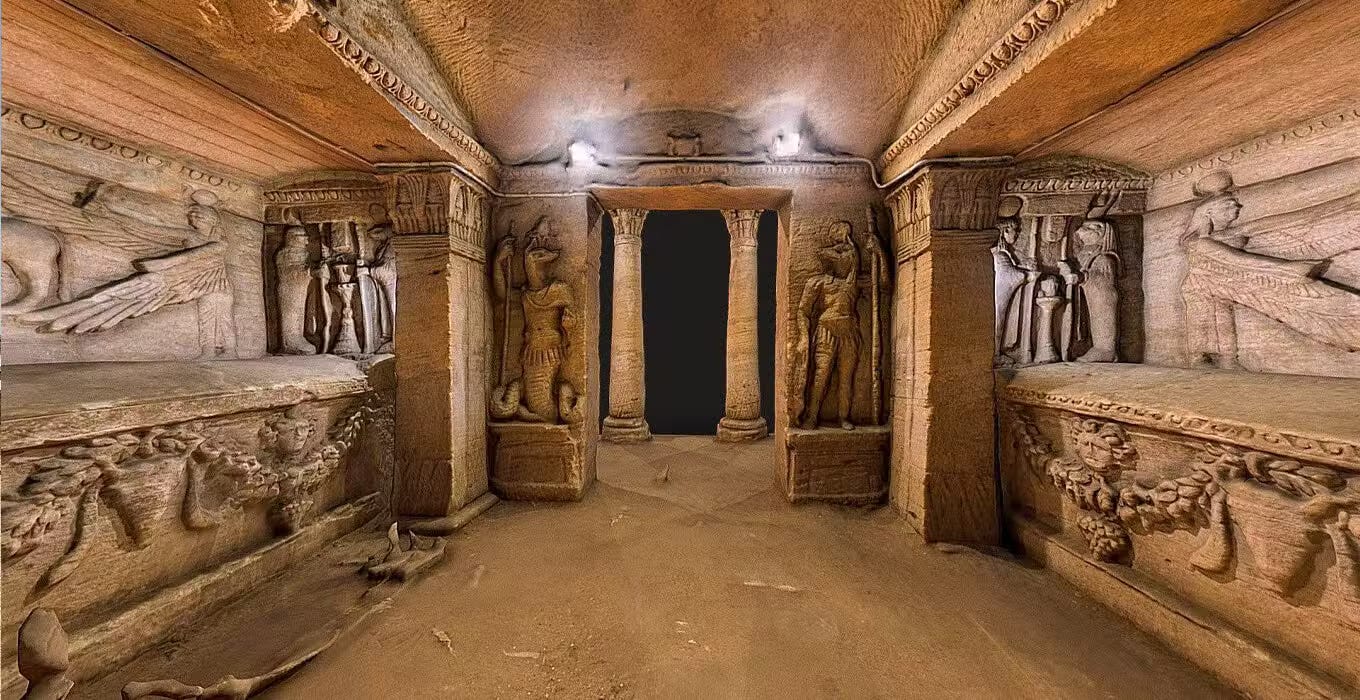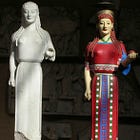The Forgotten Neoplatonist: Damaskios and Platonic Orthodoxy Part 1
The reality of the last Schools of Alexandria and Athens, and why the pagan-Christian dichotomy is inaccurate
Please note that as a long read, not all of this post will show up in your inbox. Just click on the “read more” link at the bottom to see the whole post, or click here to view the full post in your browser.
I’m delighted to report that I’ve turned in the final proofs for my new translation-with-commentary of Horapollon’s Hieroglyphica, and it’s going to press imminently.
Now on presale, find out more about it here.
If you haven’t already seen them, see the following extracts right here on Thyrathen:
Today’s offering is an excerpt from the book, taking a close look at the on-the-ground reality of late antique pagan thought and interaction with early Christians in the schools of Alexandria and Athens. Many reductionist stereotypes surround this fraught history, and this section of my book explores it through the eye-witness accounts of two key figures, one pagan, one Christian: Damaskios, the last Scholarch of the Platonic School of Athens, and Zacharias of Mytilene, an early Christian bishop. The two of them were fellow-students at the last School of Alexandria, led by Horapollon (yes, the same one).
Their books are biographies of figures they admired: Isidoros had been Damaskios’ mentor, originally appointed leader of the Athens School before abdicating his post and giving it to Damaskios. Archbishop Severus, patriarch of Antioch (512-518 CE) is the focus of Zacharias’ vita.
Both writers provide immensely valuable detail about the on-the-ground realities, and philosophical perspectives, of the wider interactions of the communities of the day, and are second to few in the insight they provide. In view of these and similar sources, there can really be no excuses for reductionist stereotyping.
Both Damaskios and Zacharias studied under Horapollon, his uncle Heraiskos, an expert in Egyptian history and mysteries, and his father Asklepiades, who sought to harmonize Egyptian theology with Platonic thought. Far from monolithic, this intellectual community was defined by hybrid religious practices, intimate philosophical circles, and a resistance to rigid sectarian boundaries.

This is set against a sociopolitical backdrop marked by volatile Christian factions, imperial interference, and periodic pagan persecutions, revealing how intimately philosophy, theology, and identity were entangled. Too often, we think of these figures as two-dimensional symbols of a whole tradition, such as late paganism, but it is in the details of their lives and interactions that the glorious messy realities are really revealed, and that has been my aim throughout the book, and here on Thyrathen as well.
Damaskios sought to preserve and unify ancient wisdom, framing Neoplatonism as a holistic, sacred cosmology. Despite the seizure of the Alexandrian School by Ammonios, who betrayed Horapollon leading to his persecution and exile, and the closure of the Athens School in 529, the narratives from the men who lived through these events challenge the idea of Paganism’s simple “end,” emphasising instead its endurance and transformation.
Unsurprisingly, this is a contribution to my ongoing argument against reductionist binaries of Pagan and Christian, Greek and Egyptian, orthodox and heretic. Instead, I uncover the evidence to demonstrate just how fluid, dynamic, and intellectually diverse late antique dynamics really were.
Part 2 will look more closely at Damaskios’ actual philosophy in the context of Neoplatonic thought, in conversation with Proklos, Iamblichos, and Plato himself.
Read on for what I can only describe as a mad romp through the hallowed halls of 6th century Neoplatonic schools!










